Artificial Intelligence (AI), part and parcel in the digital transformation of education, will not realize its benefits unless teachers are empowered to navigate the ever-evolving technological landscape. As declared in the Vision Statement released by the UN Secretary-General during the Transforming Education Summit: the transformation of education needs teachers to become micro-curriculum designers as well as facilitators and guides of “context-responsive learning options”.
To support its Member States in such endeavors, the Unit for Technology and Artificial Intelligence (AI) in Education within the UNESCO Futures of Learning and Innovation Team organized the first of a series of consultation meetings on 25 October 2022, dedicated to the development of a framework on AI competencies for teachers to guide the planning of the national and institutional frameworks, standards or training programmes. The consultation meeting was attended by dozens of international experts in AI and education and more than 70 participants, all having contributed to an enriching discussion.
During the meeting, experts from China, the Republic of Korea and France presented emerging AI competencies in their respective contexts. For instance, in France, the AI4T (AI for Teachers) Erasmus+ project is currently underway aiming to build and test an AI training programme for teachers; in the Republic of Korea, the upskilling of teachers is built upon existing efforts to develop teacher capacities and AI literacy for students; and in China, various initiatives were undertaken to empower teachers with AI, including a collaboration of 56 universities across 46 regions to build an Intelligent Learning Environment for AI competency development for teachers.
Opening the meeting, Mr Sobhi Tawil, Director of UNESCO Future of Learning and Innovation Team, highlighted the ‘Call to Action: Assuring and improving quality public digital learning for all’, released on 19 September 2022 during the Transforming Education Summit, which reaffirmed that the power of the digital revolution must be leveraged to ensure that quality education and lifelong learning is provided as a public good. AI will only benefit the transformation of teaching practices and education if – by design – it can enhance learner-centred pedagogical approaches and higher-order thinking while respecting ethical norms and standards.
Under the key considerations for the development of AI competencies for teachers, Mr Fengchun Miao, Chief of the Unit for Technology and AI in education within the UNESCO Future of Learning and Innovation Team, presented UNESCO’s work in the area of AI and education as well as the importance of a humanistic vision to AI and education. Guided by the concept of digital humanism in the AI era, he presented the key areas of an AI competency framework for teaching including humanistic values, AI literacy, AI and pedagogy, and using and creating AI tools to facilitated learning; and the importance of the protection of teachers’ rights and the accountabilities of AI providers in ensuring the ethics of AI tools.
The consultation meeting enabled a rich exchange among experts from different regions and facilitated experience-sharing from countries leading such efforts. Despite the varying and diverse perspectives, the participants reached the consensus that teachers’ roles are irreplaceable in learning and teaching, and there is an urgent need to develop a comprehensive framework on AI, with a view to empower and protect teachers and their agency.
The series of consultations on AI and education is planned within the framework of UNESCO’s initiative on AI and the Futures of Learning. The project revolves around three strands of work: (1) a report with recommendations on AI-enabled futures of learning; (2) a guidance on ethical principles on the use of AI in education; and (3) a guiding framework on AI competencies for school students.
The outputs from this consultation meeting will also inform the organization of the UNESCO Forum on AI and Education on 5 and 6 December 2022 under the theme 'Steering AI to Empower Teachers and Transform Teaching'. The Concept Note of the Forum is available in English, French and Chinese.
- Download the consultation meeting report
- Provide your input: an online form was made available to collect inputs from a wide range of stakeholders on the development of AI Competency Frameworks for teachers. You can read the summary of inputs received online as of 1 November 2022.
Publications on AI and Education:
- K-12 AI curricula: a mapping of government-endorsed AI curricula (available in Chinese, English and Portuguese)
- AI and education: guidance for policy-makers (available in Arabic, Chinese, English, French, Russian and Spanish)
- International Forum on AI and Education: Ensuring AI as a Common Good to Transform Education, 7-8 December 2021
- International Forum on AI and the Futures of Education, developing competencies for the AI Era, 7-8 December 2020
- Artificial intelligence and inclusion, compendium of promising initiatives: Mobile Learning Week 2020
- Artificial intelligence in education, compendium of promising initiatives: Mobile Learning Week 2019
- Artificial intelligence for Sustainable Development: synthesis report, Mobile Learning Week 2019
- Beijing Consensus on Artificial Intelligence and Education (available in Arabic, Chinese, English, French, Russian and Spanish)
- International conference on Artificial intelligence and Education, Planning education in the AI Era: Lead the leap: final report








 User Center
User Center My Training Class
My Training Class Feedback
Feedback












Comments
Something to say?
Login or Sign up for free